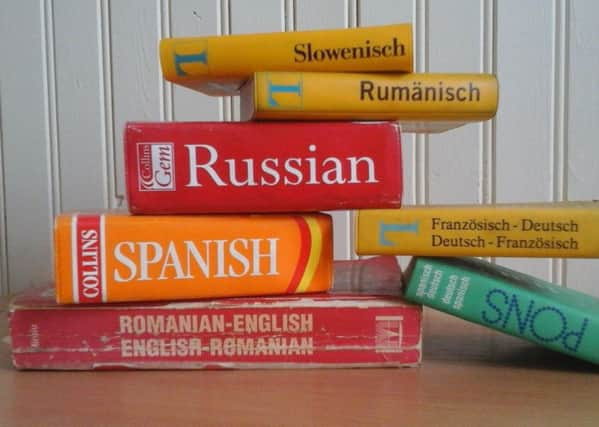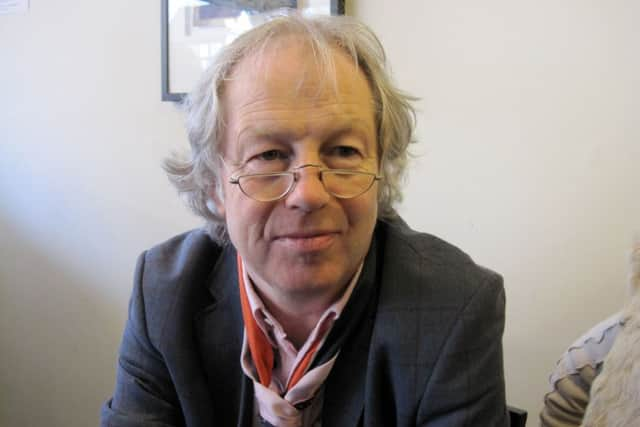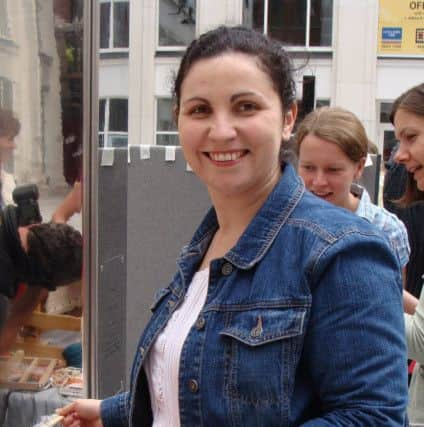Lost in translation: why we should keep learning languages


There were times during my detested French lessons at school when I wondered why we were all being trained to cross the Channel and announce to people: “Hello, my name is Helen. I have a dog. I like playing the piano. How do I get to the station?.’’
So, after three years slogging through irregular verbs and that dreaded phrase “écoutez et répétez”, I joyously deserted French and took up German.
Advertisement
Hide AdAdvertisement
Hide AdDespite the complexities of nominative and accusative cases and it’s reputation as an unpleasant, guttural language (polyglot Roman emperor Charles V once declared: “I speak Spanish to God, Italian to women, French to men, and German to my horse), I loved German and found it so much easier than French. There are certain German words that just make me smile. like Kuddelmuddel, which means mess or chaos, Rathaus, the townhall and Kummerspeck (literally, grief bacon) - the excess weight put on by emotional overeating.


When I was at school, we had the option of doing French, German and Irish at GCSE. A lot of my classmates chose these subjects and have gone on to have successful careers boosted by their languages.
But what about future generations? Will they be denied the chance of learning and loving another language?
A recent BBC survey revealed more than a third of schools in Northern Ireland have stopped offering French, German or Spanish at GCSE in the past five years,
Advertisement
Hide AdAdvertisement
Hide AdSeparate exam figures also show the number of pupils taking modern languages at GCSE here has fallen by more than 40% in the past 15 years.


This, surely, is a travesty when other nations take the time to learn English.
Recently on a trip to Poland, I was hugely impressed by the number of people there who can speak English: the man selling toys on the street in a remote village, the woman in the supermarket who asked if I wanted a bag, the bus drivers and the waiters.
I know two phrases of Polish - ‘dzień dobry’, which means ‘hello’, and ‘dziękuję ci’, ‘ thank you’, and used them frequently and , admittedly, inappropriately; when a large hulk of a man nearly knocked me over on the pavement I thanked him!
Advertisement
Hide AdAdvertisement
Hide AdOften, as English speakers we seem belligerently convinced than if he world doesn’t understand us then we should just shout louder at them. Or if we do have a bit of Spanish or whatever, we end up having fumbled holiday conversations in shops, accompanied by a lot of frantic pointing.
It’s true that English remains the lingua franca of big tourist resorts and the global business elite, but the trouble with lazily relying on everyone else to speak your language is that it can make you vulnerable.
What monoglots often don’t realise is that they will only ever hear as much as the people around them want them to hear; that private conversations will remain a closed book. If you really want to take back control, then learn a language.
Speaking to someone in their own tongue is a gesture of empathy and respect. If you’re not actually very good at it then in some ways all the better; at least it’s obvious you’re making an effort.
Advertisement
Hide AdAdvertisement
Hide AdIt’s a principle fervently adhered to by award-winning journalist and accomplished linguist, Eamonn Mallie.
‘‘In a lot of coffee shops I go into there are young Polish ladies and guys serving me. When I say to them ‘jak się masz?’, how are you, their faces light up. It’s my way of welcoming people into this country. It’s my way of being a tiny little ambassador, to show that I am interested in other people.
‘‘I am a committed European - I love everything about Europe. I love going to the various countries, I love absorbing the culture and I love, above all, having the capacity to express myself in the language in the country in which I find myself.’’
Eamonn speaks Spanish, French and Irish, but adds that he’s ‘‘crazy about all languages’’.
Advertisement
Hide AdAdvertisement
Hide Ad‘‘I’m interested in every language. I just love languages. I do my best to pick up phrases or words in any language when I get the opportunity. If I met somebody from Russia I would try to get a word or phrase. I also have a few words of Italian.’’
Eamonn says he is constantly practising his language skills.
‘‘If I go out for a walk I talk to the trees in Spanish, I sit and translate the news into French or Spanish and, a lot of the time, into Irish. I keep testing myself and updating my knowledge.’’
He adds: ‘‘In terms of my love for the Irish language, it was a complete accident. I was about seven or eight when I heard an old man using a phrase in Irish. There was no Irish spoken in my family, but my parents recognised that I was interested so sent me to a summer school in O’Meath.’’
Advertisement
Hide AdAdvertisement
Hide AdEamonn went on to study the subject at A level and at Trinity College Dublin, where he was taught the language by a Presbyterian Minister, Rev TP McCaughey.
He says: ‘‘I feel a fuller person because I learned Irish and other languages.’’
Co Armagh native Barbara Collins is fluent in Spanish and says it has enriched her life both professionally and personally.
“I started learning Spanish in second year at grammar school and ended up doing it for A-Level. A summer au-pairing in Lower Sixth really made a difference. I fell in love with the place and living the language was so different to classroom learning.
Advertisement
Hide AdAdvertisement
Hide Ad‘‘I chose to do Spanish and English at Trinity College, Dublin as a good basic degree which would give me options. I au-paired for another summer at the end of first year and also did a gap year teaching English after my first degree.’’
Barbara says those periods in Spain gave her lifelong friends and a fluency that has stayed with her.
‘‘My first job was as a South America editor of an online oil and gas news channel. When I started at BBC Northern Ireland I used my Spanish on various stories, most notably the Basque country elections, the Colombia Three and the Madrid Train Bombings.
‘‘Now, as a food writer and agri-food consultant, I still use my Spanish for stories and sales.
Advertisement
Hide AdAdvertisement
Hide Ad‘‘I have three children and I speak to them frequently in Spanish. My children understand Spanish and speak a little but more importantly they see how I use it when we go on holiday and when friends come to visit.
‘‘Without the foundation I had at school, I definitely wouldn’t be bilingual. I learned from excellent teachers but what also cemented my knowledge was the time I spent as an au-pair and as a TEFL teacher. I realise that STEM subjects are important but languages are crucial for personal development as well as being a massive advantage career-wise.’’
And Barbara believes it is never too late to start learning a new language:‘‘There are so many good courses. I think face to face is always best. Languages are about people, culture, history, colour. Nothing beats travelling to where they are spoken and making native friends. I would urge anyone to give it a try. Animo!’’